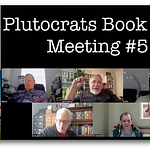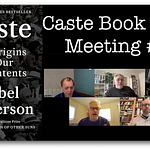I've begun getting more serious about my health and fitness. Partly this comes from a blood test I had done in preparation for a colonoscopy, a month or so ago. I had been aware that I was overweight and I was planning on watching what I ate and exercising this summer. The results I got on the metabolic and lipids tests convinced me that I need to get a bit more serious than that.
I have been moderately interested in health and have read or listened to several books in the last year or so. Things like Peter Attia's Outlive, which I thought was well-grounded in medical research, and Dave Asprey's Fast This Way, which I thought was not. I have had good luck with intermittent fasting in the past, so I thought it would be a good idea to start it up again. I thought the key was reducing the calories I ate and increasing the calories I burned. I had joined Crossfit for a while last year, and that seemed to be the message I got from them, too.
My logic was that if a pound of fat is worth 3,500 calories, then avoiding 3,500 of food would pretty automatically lead to losing a pound of weight. I set out to do that and I lost a few pounds. Then I took a break (gave myself a cheat day) and was disappointed to see that weight bounce back much faster than I expected. That wasn't particularly motivating, I have to say. I had been getting ads in my email for quite a while, for an item called Lumen that claims to help you "hack" your metabolism by keeping track of when you are burning carbs and when you're burning fat. I understood this to be somehow important and related to ketosis, which everyone who has embraced "paleo" diets claim is a marker for metabolic flexibility and an important goal. So I ordered a Lumen.
As I was waiting for it to arrive (it shipped from Hong Kong, I think) I continued watching YouTube videos related to fasting. I discovered a guy named Jason Fung who is a nephrologist in Canada, whom I saw was credited with helping popularize fasting in the mid-2010s with his book, The Obesity Code. So I read that. As a kidney doctor, Fung spends his days working with diabetes patients. His thesis is that it's all about insulin and specifically insulin resistance. The idea that surprised me the most was that calorie reduction really doesn't work for weight loss, because your metabolism slows down to accommodate the reduced supply. Also that, as long as your insulin levels are high, you can't actually burn fat.
This meant the seemingly straightforward logic of just counting calories and reducing my net by 3,500 a week either through eating less or exercising more was not going to result automatically in a pound of weight lost every week. Damn! There goes my plan of getting to a goal by mid-summer, I thought. My body apparently had developed some type of "set-point" and I was just stuck with it.
But as I read more, it seemed like this might not be the case. Although the science behind this part of the theory is sparse, the implication of Fung's idea seems to be that the set-point (whatever its actual mechanism is) appears to be related to insulin resistance. So reducing insulin resistance (and thus overall levels of insulin I'm producing) might allow my body to find a new homeostatic center.
So I started getting more serious about fasting. Eating nothing at all, Fung claimed (as did others like Dr. Pradip Jamnadas, a cardiologist who also runs a YouTube channel), would drop insulin levels and reduce my resistance, which had been increased by years of eating too frequently for the hormone to be cleared from my bloodstream. Meanwhile, I discovered that although they wanted to give me detailed advice about how many carbs to eat each day (and even sell me food!), the Lumen app had no capability for allowing me to say I was fasting. It would ask me, each morning, when I had my last meal before going to bed. "I didn't eat at all yesterday" was apparently something they hadn't even considered. So, while I will continue to use the Lumen tool to measure how much fat I'm burning, I've dropped the ongoing subscription with the meal-planning and coaching tools.
So I started during the last week of March, fasting a bit every day. In the past I had done 16-hour fasts fairly regularly. After reading about longer fasts in Fung's book, I thought I might try them too. The value of Fung's descriptions and discussion was that he focused quite a bit on published medical studies. He discussed studies he thought had been misinterpreted, like Dr. Ancel Keys' Minnesota Starvation Experiment (he said it was actually calorie restriction, not fasting) or that had been ignored when they came to inconvenient conclusions, like the Women's Health Initiative study, which showed the "Eat Less, Move More" strategy didn't work. Fung also told stories of people who had done longer fasts with little difficulty and great results, which inspired me (one of these people was Angus Barbieri, about whom I wrote last week).
The first longer fast I did was required by my colonoscopy. When it went fine, I decided to start incorporating 36 or 42 hour fasts into my schedule each week. 36 hours is fairly easy. I eat a dinner and then eat nothing the following day, breaking the fast with breakfast the next day. I feel a bit hungry, especially at what would normally be mealtimes. But I focus on something else. Sometimes I remove myself from the main living area of the house, if everybody is having a meal. Other times, I'm not bothered, and drink a cup of tea.
My energy levels have been just fine while fasting. I've gone to work and I've worked out, without noticing any difference. The accounts of longer fasts (beyond two days) suggest that once the body has burned through all the glycogen in the liver and has made a little glucose from excess proteins, fat burning begins in earnest. This is supposed to be associated with increased energy, for a couple of reasons. First, the metabolism is NOT reducing itself to deal with reduced calories. Second, adrenalin, cortisol, and growth hormone will apparently kick in to increase my energy. This is often described in slightly silly evolutionary terms as giving me the power to leave the cave and successfully hunt the next wooly mammoth; but I'll take it. The one thing that is supposed to happen after day two of a longer fast is that the brain switches to mostly ketones for energy, which many people claim improves their cognitive performance. It'll be interesting to see how that feels. In the past I haven't had the best results measuring my ketones, so I'll be curious to see if they're more apparent during a longer fast.
I've also begun eating one meal a day (OMAD) on the days I'm not doing a longer fast. It seems a bit weird to be thinking of OMAD as a "non-fasting" day, but I've noticed that's how I'm beginning to think of it. One thing I think I've decided, though, is to make my one meal a lunch rather than a dinner. I'm trying not to eat more than a "normal" amount of food during this one meal, but still I feel better when I don't go to bed on a full stomach. In any case, I think that on this new plan I ought to be able to reduce my weekly calories by 3,500 or more without tanking my metabolism. So in addition to the increases in metabolic flexibility and insulin sensitivity, I hope I will see the weight loss and improved fitness. I'll let you know how it goes!
Links: If you found this interesting, you might be interested in this related post:
"On Governors" and Angus Barbieri
When I read Antifragile a couple of years ago, I was impressed with the idea Nassim Taleb expounded that discontinuous variations or volatility could be more beneficial in some circumstances than ste…














Share this post